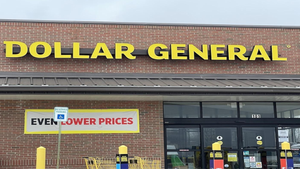Silicon Valley Bank has short shelf-life for this grocery tech companySilicon Valley Bank has short shelf-life for this grocery tech company
Shelf Engine founder says he and his company plan to move to a new bank, following SVB banking meltdown.
If you had asked Stefan Kalb, CEO and cofounder of grocery tech company Shelf Engine, a week ago his opinion of Silicon Valley Bank (SVB), he’d have given a glowing review.
The head of the Seattle-based tech startup, which uses artificial intelligence to predict the supply and demand of perishable grocery store items, had worked with the bank for more than a decade—Shelf Engine was launched in 2015, but Kalb's relationship with SVB began with his grab-and-go food company, Molly’s, which he started in 2009.
“On Wednesday, I would have told you Silicon Valley Bank is a good bank, and there have been no problems,” he told Winsight Grocery Business in a recent interview. That would all change within 24 hours, though, as Kalb began to learn of the bank’s eminent collapse.
By the end of the week, SVB would begin to crater and Kalb and his business partner, Shelf-Engine Chief Technology Officer Bede Jordan, found themselves scrambling to figure out how their company was going to make their next payroll.
At the same time, he began talking to the media about the debacle. First it was National Public Radio, then CNN, followed by the Associated Press. He now tells WGB that the Federal Deposit Insurance Corporation’s takeover of the bank on Monday means that his company was made whole, but he still plans to move the money to another bank.
They're not the only company moving their funds as the dust settles, and while Shelf Engine came away relatively unscathed, other companies that were already facing financial difficulties, such as New York-based bulk-produce retailer Boxed Inc., are now considering a possible bankruptcy as a result of the disruption. Boxed said in an 8-K filing on Tuesday that it already “transferred a majority of its cash out of its SVB accounts.”
Like a lot of tech startups, Shelf Engine held all its money at SVB. Described by Kalb as “the gold standard” for tech startup financial institutions, SVB is known for doing business with about half of all tech startups. About a month prior to the collapse, Forbes ranked SVB as No. 20 in its list of “America’s Best Banks” and noted that the Santa Clara, California-based institution held roughly $213 billion in assets.
By the end of last week, Kalb was struggling to get his company’s money out. Word had gotten out that the SVB was on the verge of failing, which spurred a run on the bank. Depositors were initially worried that a takeover by the FDIC would mean they would initially have access to only $250,000 of their funds to help shore up operations. That wasn’t even enough to make payroll for a lot of the bank’s clients.
Kalb said Shelf Engine was among the companies trying to get their money back. They opened a JPMorgan Chase account and began trying to move the $60 million it held at SVB. Bank regulators moved quickly, and by Friday, SVB was shut down by the California Department of Financial Protection and Innovation and placed into receivership under the control of the FDIC.
Without financial institutions like SVB, many tech startups would have a difficult time getting off the ground, according to Kalb. He tells WGB that this is particularly true for high-growth companies like his, which expects to double its presence in grocery stores—from around 2,000 stores to roughly 4,000—by the end of the year. And tech solutions are vital in an industry as fast changing as the grocery business, he said. “It's really critical that companies like ourselves continue flourishing and being part of ecosystem,” he said.
The company’s future growth will likely be with a different bank moving forward, Kalb said. The FDIC appointed Tim Mayopoulos CEO of the Silicon Valley Bridge Bank, and the financial institution is working to keep its customers. On Monday, the bank released a statement assuring customers they are “doing everything we can to rebuild, win back your confidence, and continue supporting the innovation economy.”
“The number one thing you can do to support the future of this institution is to help us rebuild our deposit base, both by leaving deposits with Silicon Valley Bridge Bank and transferring back deposits that left over the last several days,” Mayopoulos said in the statement.
But that likely won’t be enough for Kalb and others. “Ironically, they are the safest bank in the world now, because they’re backed by the FDIC,” he said.
Kalb added that the violation of trust is the biggest cause for concern, and he’s also worried SVB won’t be able to provide the same services it has in the past under the current structure. “We need proficient banks to service our companies,” he said.
About the Author
You May Also Like






